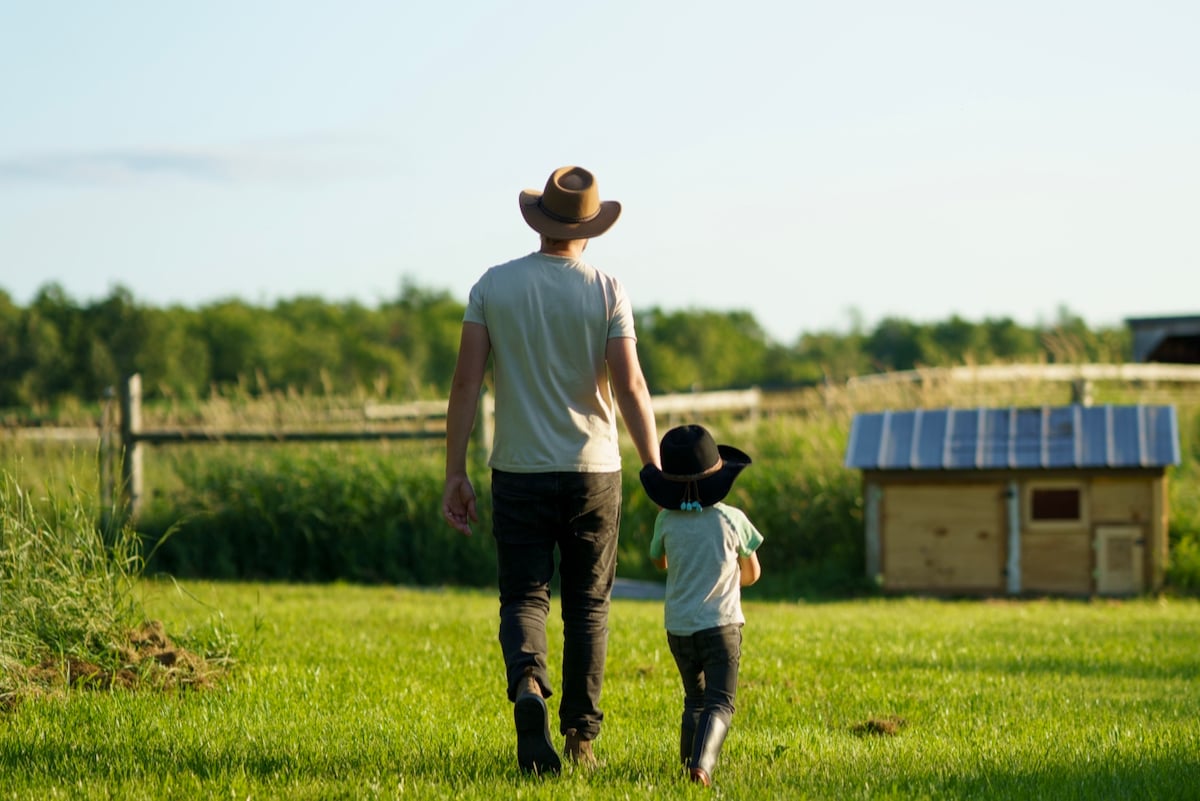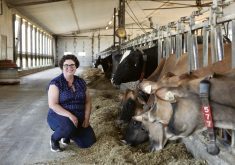Countless surveys show the same results. The world has changed.
In today’s post-Covid-19 times, we all want more. Or, to put it more accurately, we all want to do more.
If you aren’t keeping up on the field called corporate responsibility it might be a good time for a long, hard look in the mirror.
Read Also

A new spin on farm legacy
What does farm legacy look like for the next generation.
Businesses are rethinking their purpose at work. In a decade of big changes, this is one of the biggest.
Everyone is yearning to align themselves with places that align with their beliefs, which means business strategists are being forced to get creative with how they run their companies.
So what exactly is it that everyone is looking for? They want to work with organizations that aren’t just doing well — i.e. they’re turning a profit — but are doing good too. That means we are all primed to work with companies that have a strong corporate culture and giving program.
For instance, McKinsey is one organization diving deep into employee trends and its research continuously supports one basic finding: when a company’s purpose is aligned with the employees’ purpose, good things happen. How does this translate into work in action for employers across Canada? It’s about designing and delivering programs to help employees feel their place of work is contributing toward positive impacts on local communities and society.
Labour and talent retention is nothing new in the agricultural markets in Canada; every farmer has experienced some version of it. Now, leading ag companies are taking notice and creating new programs supporting corporate giving and employee engagement.
“For us, it started with looking at the financial effects of Covid-19 in communities we work with, and trying to determine how we can best make a contribution,” says Darren Dillenbeck, who was FMC Canada country manager before moving on earlier this year to become president of FMC, U.S. Crop Protection.

This wasn’t a totally new idea. The concept has been talked about for years — what does corporate citizenship look like in rural communities, and how can companies create programming that works to support their local community’s needs.
In fact, FMC already had an internal program, Double Down, where it would match employee donations to the charities the employee was donating to, but the organization was keen to adopt a broader strategy and refocus its efforts in corporate philanthropy.
The approach FMC took was to empower employees to go away and come back with ideas for senior leaders to consider. “We asked them what they would like to do and where they would like to see an impact,” Dillenbeck says.
It meant another change too. The challenge would be to come up with a program that would do more than cut cheques to organizations that were asking for donations. Instead, it would try to find purpose in giving while engaging employees and others along the way.
The result? In fall 2020, the FMC Clean Fields, Community Yields program was launched.
It’s an example of how corporations can engage both employees and their retailers to work together to drive change in communities. Employee Jordan Brisebois was an early driver of the development and implementation of the program. “During the Covid-19 lockdowns of spring 2020, a lot of funding was drying up for small communities — everything from little hockey and baseball teams to community food bank programs, and we really just wanted to pump some good news, positivity and some goodwill back into people around us,” Brisebois says. “And that really was how it was born, looking at ways to give back and lift the spirits of our communities.”

As fall 2020 was approaching, a typically heavier sales period for FMC and its fall herbicides, the FMC Clean Fields, Community Yields program was developed using the principle of FMC giving back 10 cents for every acre of fall herbicide sprayed to local charities or organizations.
For FMC sales employees, this also meant a new opportunity to connect with retailers and talk with them about how they can work together to best create impact. In the first year, 140 retailers engaged with Clean Fields, giving back $77,000 to 34 different organizations in communities across central and Western Canada.
By 2021, the number doubled to more than 228 retailers participating with donations totalling $162,000. As the campaign continues, FMC is expecting even more retailers to participate. One of the key reasons FMC believes its take-up is so successful is that it created a structure to empower employees to make key decisions while providing “guideposts” along the way.
“We wanted something that was driven by our staff; allowing them to make decisions that are best for their local communities,” Dillenbeck says. “We didn’t put a ton of rules around it; we leave it open to give employees that flexibility.” The donations range significantly, from several thousand dollars to $500 cheques to local sports clubs to buy jerseys. “It’s about engaging employees and allowing them to take action where they think best suited in their local community.”
One particular story has created a significant impact — the story of Anna, an employee of one of the retailers, who was seriously injured in a horse accident that resulted in a STARS air ambulance rushing her to hospital.
Significant donations under the FMC Clean Fields Community Yields program have been made to STARS with employees from FMC and its retailers uniting to support Anna. In 2021 alone, STARS received more than $40,000 under the program. “Anna’s story was shared with us by one of our team members and it has been great for all of us to share in her road to recovery and feeling like we can help make a difference,” says Brisebois.
From an employer’s perspective, creating an environment where people can feel they have a purpose in their work is resulting in more productive employees. A recent Gartner study also found these employees are healthier, more resilient and more likely to stay at the company. For FMC, Dillenbeck says programs like this are helping with employee attraction and retention.
“We don’t seem to have any trouble finding good employees — it’s our own team members who are referring people to come and work for us,” he says. “That’s always a great sign — low turnover and high internal referrals. It’s something we are really proud of.”
For employees like Brisebois, it helps to create connections amongst employees and retailers who are working towards similar goals to generate positivity in their communities. “For many of us, it’s helped to create a family-like atmosphere and those fun, great family values within a company,” he says.
There’s never a right or a wrong time to begin corporate giving programs, especially in times of a tight labour market and for those looking for advice on where to start, Dillenbeck says to think of ways to help you connect with both your team and your customer. “Our program really blended the two together and brought us closer to our customers who participated in the program through their purchases,” he says. “If businesses are looking at creating better connections, this is a great way to do it that can meet multiple objectives — a win for the farmer, the retailer, the employee and the community.”
Starting points
Looking for inspiration on how to start your corporate giving program? Check out these ideas from Canadian agricultural companies:















